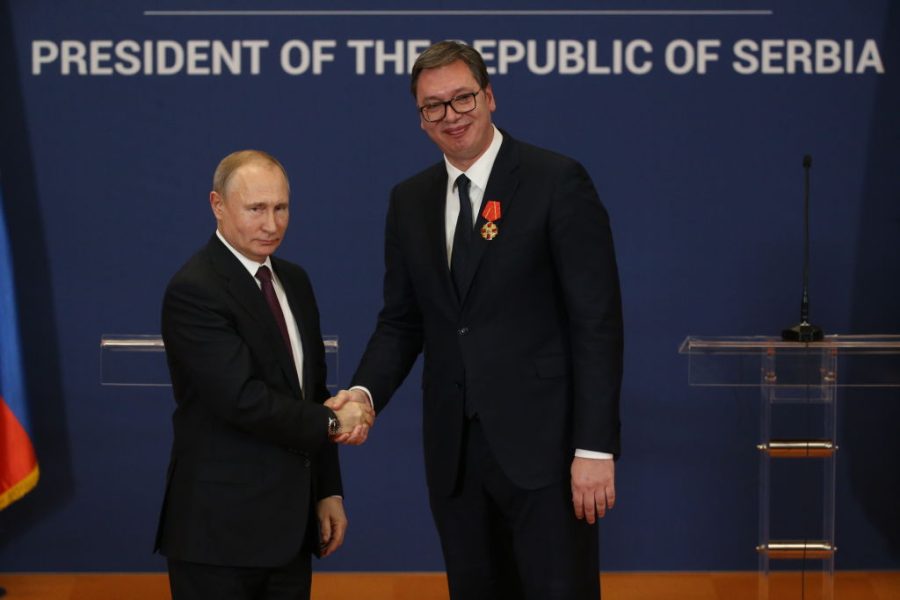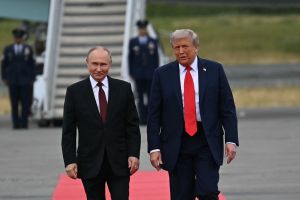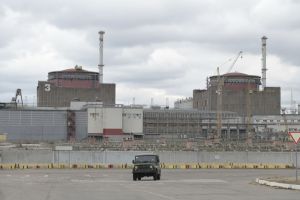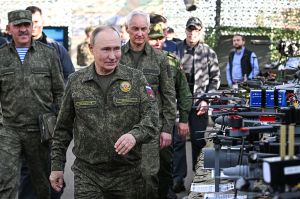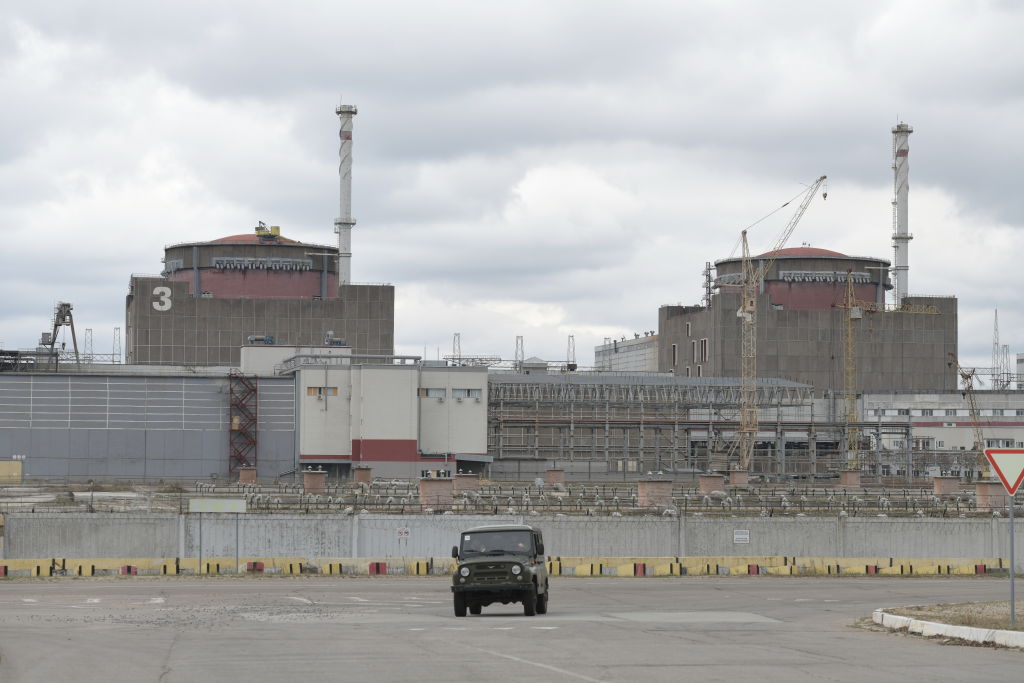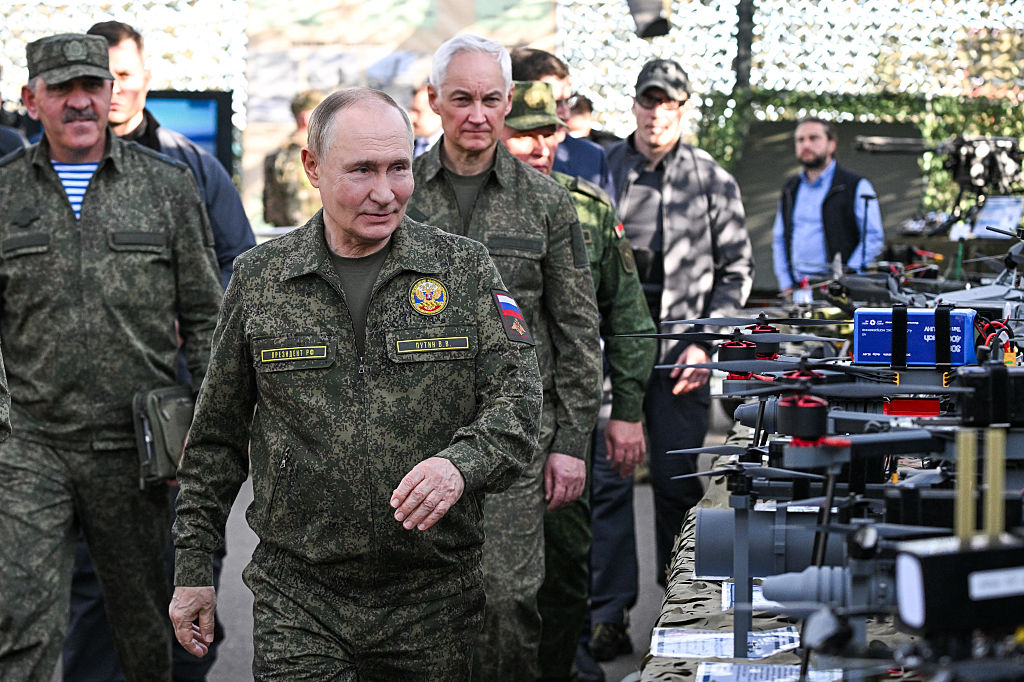Is it getting harder for Serbian president Aleksandar Vučić to maintain his balancing act between Moscow and the West? Why else, after all, would Russia’s Foreign Intelligence Service (SVR) suddenly revive a year-old story about covert arms supplies to Ukraine?
Back in June of last year, the Financial Times splashed the story that Serbia had exported around €800 million ($900 million) worth of ammunition to third parties that then ended up being transferred to Ukraine. At the time, Vučić did not try to deny this, but said that it had nothing to do with Serbia. “We have had many contracts with Americans, Spaniards, Czechs, others,” he said. “What they do with that in the end is their job.”
This is a warning and a gift all in one
This is nonsense. Ammunition, like weapons, is covered by the international system of end-use certificates, which control their re-export. It is, of course, possible for unscrupulous facilitators to find some loopholes in the system, but €800 million worth? Hardly.
Yet at the time, Moscow offered only the most muted of responses. Kremlin spokesman Dmitry Peskov simply suggested that they would be having discussions with “our Serbian friends,” while the Foreign Ministry’s Maria Zakharova, usually a reliable source of impassioned vitriol, overlooked it altogether. Ultimately, the Russians recognize that Vučić is one of their last best friends in the Balkans, and his efforts to maintain a working relationship with the European Union also work to their advantage. “The closer Serbia is to the EU, the more useful it can be for us,” asserted one Russian think-tankers close to the Kremlin bluntly.
Besides which, Serbia is useful for so many Russian agencies and individuals, from the intelligence agencies using it as a base for operations across the Balkans, to the sanctions-busters who use it to move goods to Russia and launder their profits. This is particularly an angle that Aleksandar Vulin, Vučić’s loyal henchman – who, in his time, has been deputy prime minister, spy chief, interior minister and defense minister – has pushed hard during his numerous trips to Moscow. Meanwhile, Serbia remains dependent on Russian gas and has not joined the wider sanctions campaigns against Moscow.
It might seem strange that the SVR is now reopening this issue, especially considering that Vučić attended Putin’s Victory Day extravaganza, despite threats from Brussels that it would jeopardize Serbia’s chances of joining the EU and a diplomatic illness that looked as if he was laying the groundwork for an eleventh-hour change of heart. Yet it is doing so with enthusiasm.
The “Serbian arms industry tries to stab Russia in the back,” it said, “in defiance of Belgrade’s officially declared ‘neutrality.’” Even though “Russia has stood by Serbia during the most critical moments in its history,” nonetheless “the desire of Serbian arms makers and their backers to profit from the blood of their fellow Slavs has made them forget who their real friends are, and who their real enemies are.”
While challenging some elements of the SVR’s report, Vučić has said that if it does transpire that Serbian arms and ammunition are indeed ending up in Ukraine, he will cancel the relevant contracts. Nonetheless, he doesn’t seem quite as discomfited as one might expect. Two distinct conspiracy theories are doing the rounds in Moscow to explain this.
The first is that this is all performative, that Putin is helping Vučić out with a carefully staged row. The Russians realize that he has to play a double game – and that the Serbian economy cannot afford to curb its arms exports. Given, then, that Vučić blotted his copybook with Brussels by going to Moscow, this is intended to restore his credibility with the Europeans.
The second is that it reflects the slow decline in the influence of Nikolai Patrushev, former secretary of the Security Council. A hawk even by Kremlin standards, Patrushev had become the informal “curator” – manager – of Russia’s Balkan policy. A frequent interlocutor with Vučić, Patrushev had been the main driver behind Moscow’s “Serbian Trojan horse” strategy. However, with the prospect of EU membership for Serbia as distant as ever and hundreds of thousands of Serbian-made tank and artillery shells flowing into Ukraine, others are now suggesting that the current policy benefits Vučić more than Moscow.
There is likely some truth in both explanations. There is a degree of impatience with Serbia that can now be expressed within the Kremlin more easily now that Patrushev is just a presidential aide, a position giving him influence rather than power. Nonetheless, there is also an awareness that Moscow has severely limited options for influence in the Balkans, and it is Serbia (and Bosnia’s Respublika Serbska) or nothing. Hence the use of the SVR to lead this campaign, an agency still close to Patrushev and with numerous back-channels into Belgrade. This is a warning and a gift all in one, a case study of just how complex the geopolitics of the Balkans remain.



